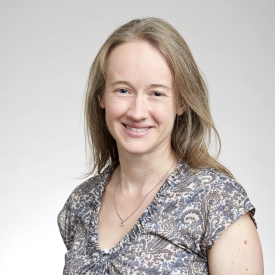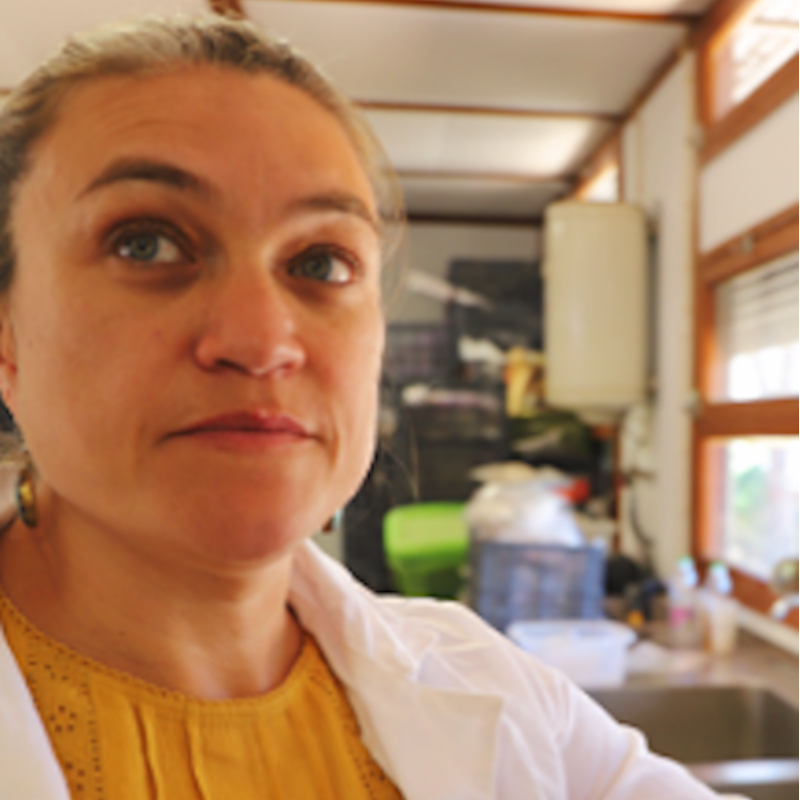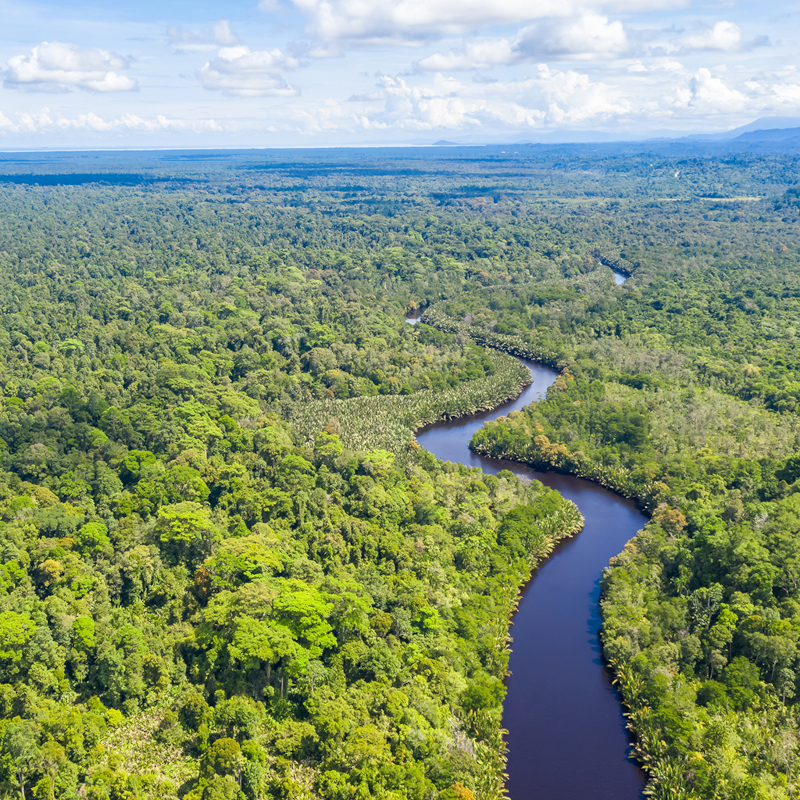Philosophical Transactions B recently published a theme issue on ‘Shifting seas: understanding deep-time human impacts on marine ecosystems’. In this blog, Guest Editor Dr Luke Holman (University of Copenhagen) tells us how this issue came about, and about some of the important research highlighted in this issue.
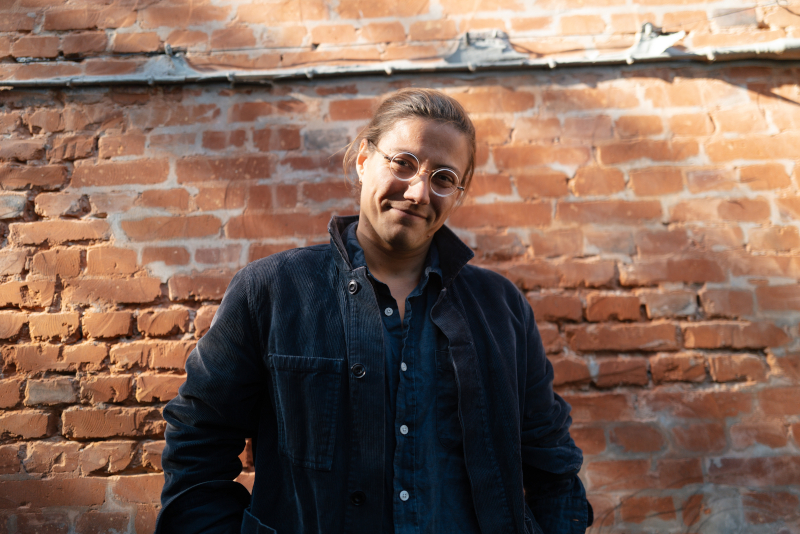
Tell us about the idea behind this theme issue and how it came about.
The idea for this issue really emerged when the first large datasets from the European Research Council Synergy project, Seachange, landed on my desk in 2023. It was exciting and inspiring to be bringing together data from different disciplines, for example archaeology, paleoclimatology and biodiversity science, to understand how the ocean has changed. I thought that datasets showing changes in marine biodiversity, climate and human-ocean relationships over a long time period would be much more interesting brought together in a single journal, rather than split over many different outlets. While a growing number of outlets are also excited about interdisciplinary datasets, there are very few opportunities to read articles dealing with the same topic from different perspectives together in a single volume. From this initial thought, the guest editor team quickly grew as others who also understood the value of working outside of their ‘home’ discipline joined to help bring the issue to life.
Looking back at some early drafts of our proposal, I can see how much our initial idea for the issue expanded. At the start we mostly had contributions that used animal remains, such as bones or shells, to learn about ancient oceans. Only later as we reached further into our networks did we find a whole new strand of exciting research about the complex relationship between people and changing seas using a range of archaeological and historical ecology datasets.
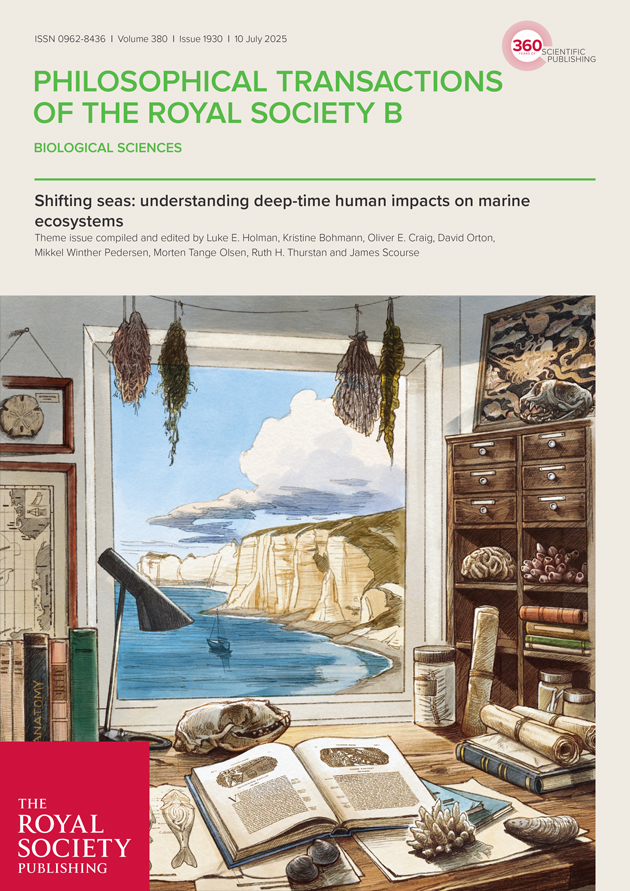
What do you think is the most exciting idea discussed in the papers?
Something that emerged across all the contributions is the importance of the long-term past to understand the oceans of today, and the usefulness of past oceans to help us with marine restoration and conservation. Today, technological advances are providing hope for the oceans in a time of global challenge. Take, for example, recent work detecting industrial fishing vessels in marine protected areas from space, new tools like environmental DNA to detect marine life with increasing sensitivity and accuracy, or the exciting development of artificial-intelligence-based methods to better understand our seas. However, I think our issue reveals the importance of looking back, as well as forward, to contextualise and understand today’s shifting seas. An obvious example of the importance of a long-term view comes from Daniel Pauly’s concept of shifting baseline syndrome, wherein an increasingly degraded state of biodiversity is accepted as normal across generations due to a short-term view of marine ecosystems. In the issue, one key finding across several papers is how climatic and human stressors can sometimes interact and have an unexpected combined effect on marine biodiversity, as revealed in articles led by Loren McClenachan and Jon Cybulski. There are so many lessons from past oceans that could help us solve the problems of today.
How was your experience of being a Guest Editor on Phil Trans B? As an early career researcher did you find it particularly challenging or rewarding?
The experience has been fantastic, particularly as an early career researcher. I’m definitely the least experienced guest editor in our group and was worried when beginning to fill out the proposal forms that we didn't have enough editing experience. I needn't have worried! As my co-guest editors added to the document I was impressed by the collective impact our group of eight has had on scientific publishing through reviewer and editing roles. I think that’s probably one of the most rewarding things for me about building a theme issue - having a chance to make a big impact, not only through your own work, but by creating a platform for the kind of research you want to see more of.
Another highlight has been all the art commissioned for the issue. Our wonderful cover illustration is by Maddy Dall, who weaved together an ever-growing list of items into our researcher's desk scene - see how many links to research in the issue you can find! The paper led by Jon Cybulski is full of fantastic case study illustrations from Cooked Illustrations; my favourite is the one depicting the indigenous pearl divers from over 2000 years ago in the Tropical Eastern Pacific. Finally, Jacek Matysiak created a wonderful scene of marine change for the introduction which is reprinted below.
.jpg)
Tell us a bit about your own research.
My research investigates marine biodiversity change across space and time. I’m fascinated by the complexity and beauty of the oceans and bring my expertise in DNA-based methods to interdisciplinary research to reveal the fundamental processes at play in nature. Through sediment records I investigate ecosystem change from ancient environmental DNA across Holocene seas, revealing untouched oceans long before humans had substantial impacts. Using DNA extracted from water samples I’m interested in answering fundamental questions in community ecology and biogeography. More and more I’m enjoying incorporating other disciplines into my research - recent examples include oceanographic models and paleoclimatic proxies. My favourite part of research is those ‘a-ha’ moments - when you see a plot that took years to produce or something about an ecosystem just clicks when you’re out in the field.
Connect with Luke on Bluesky and LinkedIn.
Read the theme issue ‘Shifting seas: understanding deep-time human impacts on marine ecosystems’.
Visit our website to read more content from Philosophical Transactions B, or to find out how you can become a Guest Editor for the journal.
Image credits
Author photo: Andreas Mojlanen
Journal cover image: Illustration by Madeline Dall
Illustration: Jacek Matysiak

